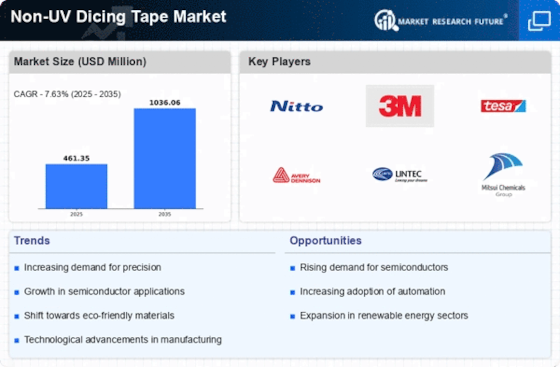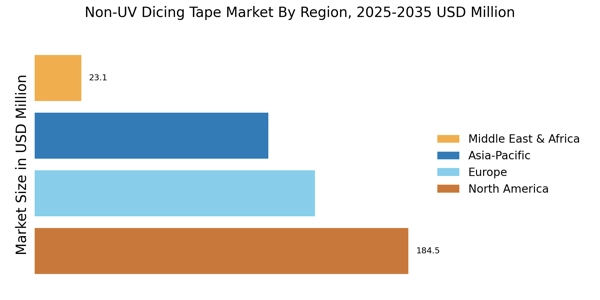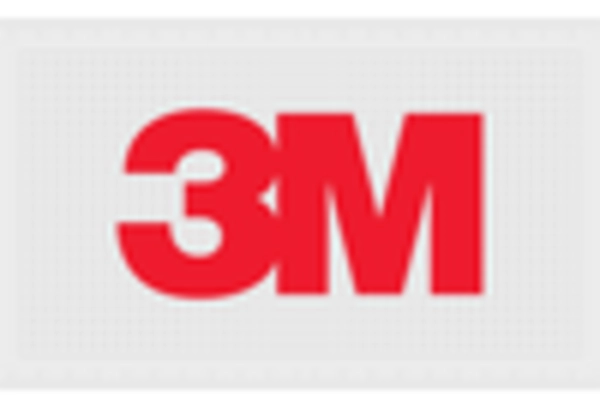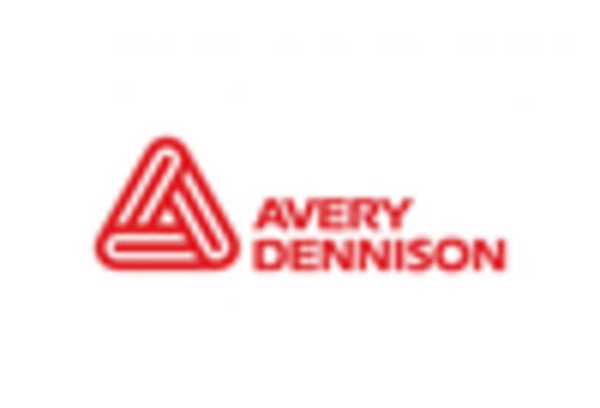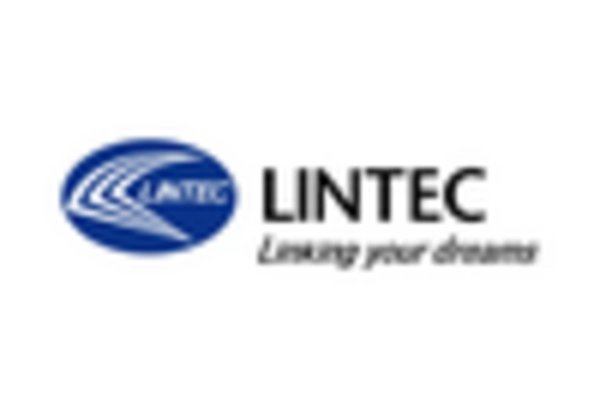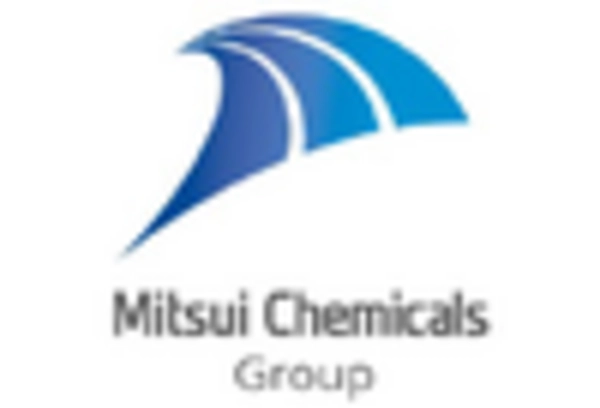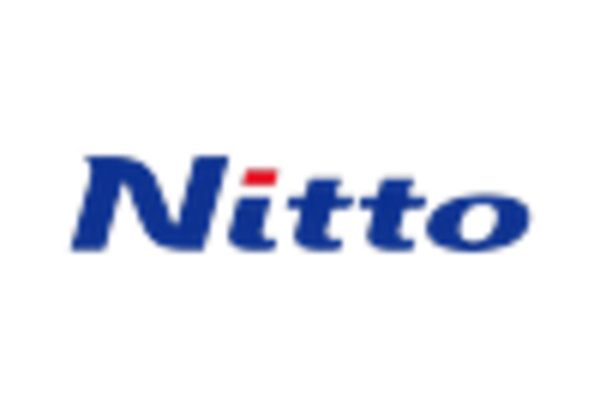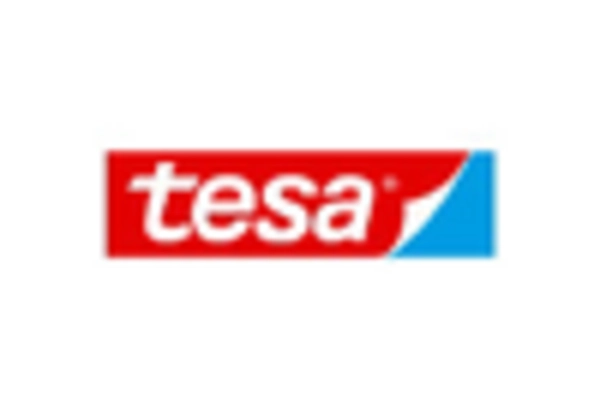Expansion of the Electronics Industry
The expansion of the electronics industry is a pivotal driver for the Non-UV Dicing Tape Market. With the proliferation of smart devices, wearables, and IoT applications, the demand for efficient dicing solutions is on the rise. The electronics sector is projected to grow at a compound annual growth rate of over 5%, creating a substantial market for non-UV dicing tapes. These tapes are essential for the precise cutting of various electronic components, ensuring high-quality production standards. As manufacturers seek to meet the increasing demand for miniaturized and high-performance electronic devices, the reliance on non-UV dicing tapes is expected to grow. This expansion in the electronics industry is likely to significantly contribute to the growth of the Non-UV Dicing Tape Market.
Advancements in Manufacturing Processes
Innovations in manufacturing processes are playing a crucial role in shaping the Non-UV Dicing Tape Market. The introduction of advanced materials and techniques has led to the development of high-performance dicing tapes that offer superior adhesion and temperature resistance. These advancements enable manufacturers to achieve higher yields and reduce waste during the dicing process. For instance, the integration of automated dicing systems with non-UV tapes has streamlined operations, resulting in increased efficiency. As manufacturers seek to optimize their production lines, the demand for advanced non-UV dicing tapes is expected to rise. This trend indicates a shift towards more sophisticated manufacturing practices, further driving the growth of the Non-UV Dicing Tape Market.
Rising Demand for Semiconductor Devices
The Non-UV Dicing Tape Market is experiencing a surge in demand driven by the increasing production of semiconductor devices. As industries such as automotive, consumer electronics, and telecommunications expand, the need for efficient dicing solutions becomes paramount. The semiconductor market is projected to reach a value of approximately 600 billion dollars by 2025, indicating a robust growth trajectory. This growth is likely to propel the demand for non-UV dicing tapes, which are essential for the precise cutting of silicon wafers. The ability of these tapes to provide clean cuts without the need for UV exposure enhances their appeal, making them a preferred choice among manufacturers. Consequently, the rising demand for semiconductor devices is a significant driver for the Non-UV Dicing Tape Market.
Technological Integration in Production
Technological integration in production processes is emerging as a key driver for the Non-UV Dicing Tape Market. The adoption of Industry 4.0 principles, including automation and data analytics, is transforming manufacturing landscapes. Non-UV dicing tapes are increasingly being integrated into automated dicing systems, enhancing precision and reducing operational costs. This integration allows for real-time monitoring and adjustments, leading to improved product quality and efficiency. As manufacturers embrace these technological advancements, the demand for non-UV dicing tapes is likely to rise. The trend towards smart manufacturing indicates a promising future for the Non-UV Dicing Tape Market, as companies seek to leverage technology to optimize their production capabilities.
Growing Focus on Environmental Sustainability
The Non-UV Dicing Tape Market is witnessing a growing focus on environmental sustainability, which is influencing product development and consumer preferences. Manufacturers are increasingly adopting eco-friendly materials and processes to align with global sustainability goals. Non-UV dicing tapes, which do not require harmful UV exposure, are perceived as a more environmentally friendly option compared to traditional alternatives. This shift is supported by regulatory pressures and consumer demand for sustainable products. As companies strive to enhance their green credentials, the adoption of non-UV dicing tapes is likely to increase, thereby propelling the growth of the Non-UV Dicing Tape Market. The emphasis on sustainability is expected to shape future innovations and market dynamics.


